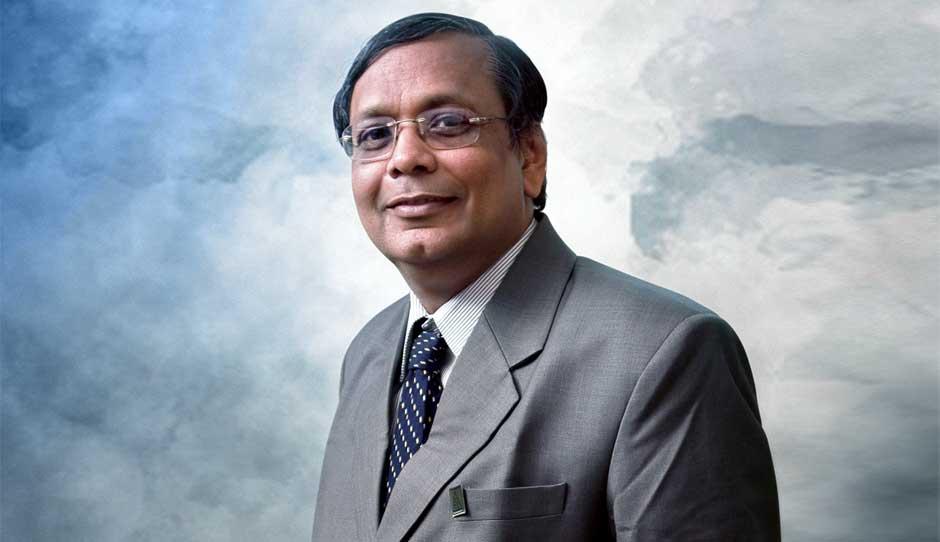Ramaswamy Sarabeswar: The Problem Solver
- BY MYB
 In Aspire & Lead
In Aspire & Lead 9164
9164 0
0

Growing up, R. Sarabeswar always knew what he wanted—to be a contractor like his maternal uncle. Such was his passion that even steady promotions couldn’t keep him satisfied. At 33, he set out to build a construction company, teaming up with colleagues from L&T, his first employers to found Consolidated Construction Consortium Limited (CCCL). In less than 15 years, he’s grown it to a 2,000 crore plus firm, known for its incredible appetite for complicated projects.
I grew up in a small village called Mayinanadury in Thanjavur district, the rice bowl of Tamil Nadu. My father taught in the village school while my mother looked after the family.
I was the eldest of three sons. The emphasis in our family was on getting a good education and subsequently a government job. If that didn’t work out, my father hoped I'd become a school teacher like him. It was the safest bet, he’d always say.
My father could be very headstrong and difficult. I’ve worked hard not to imbibe those qualities from him. He wouldn't stretch our bedtime by even a few minutes. When he said 9pm, that was sacrosanct. We hated that. Today, I thank those values. They helped me become who I am. I’ve learnt to value integrity and time from him.
My maternal uncle was also another big influence. He was a contractor who made several buildings in Thanjavur district. When I was around 12, I spent a summer vacation at his place. Seeing him at work everyday—surrounded by cement, metal, grime and sheer hard work—exposed me to a different world. This was something I'd like to do, I thought to myself. I spent many other vacations with him after that. I owe him for introducing me to the industry.
There were other reasons I wanted to be more than just a salaried employee. I’d see my father slog it out as a government teacher. He didn’t earn much. My uncle had employees to get the job done. He also had more free time and made much more money. The choice was pretty clear. I had to be a contractor. Only, I didn’t tell my father about my plans.
After school, I told him I wanted to study civil engineering. He was happy, but made it clear I could opt for the subject only if I got through the Regional Engineering College about 100 kilometres from our home. Else, I would have to do a B.A., B. Com. or B. Sc., in any subject of his choice in a local college.
Luckily, I got accepted into the Regional Engineering College at Thiruchirapalli. The college back then had only 40 seats for electronic communications—the most popular subject. I qualified for it, but chose civil engineering as my major.
College was fun and I did well. My marks were good enough for admission into a foreign university but my father didn't want me to leave India. So I went to the Indian Institute of Science for higher studies. I also got married around the same time. There wasn't enough money to support my family and my studies, so I went to work.
I got a job with Larsen and Toubro (L&T). I requested them to allow me to work and study simultaneously but they refused. I took up the job for a salary of 600. Over the years, the pay increased but it was just enough to make ends meet.
My colleagues told me of a construction company in the Middle East that was doing very well. I did some research and decided to work in Saudi Arabia’s Sobhakshi Group. I joined there as a construction superintendent. The money was good, and I could finally begin my savings.
Four years later, I moved back to India to work with the SPIC Group. Soon, I left the company and moved to Brunei. Around this time, it struck me that I wasn't clearly thinking about my future. I was just shuttling from one country to another, from one job to a next one.
In 1996, I decided to come home to India again. I applied to L&T but they refused to take me back. I then thought it was about time I started out on my own. I reached out to three friends of mine—ex-colleagues from L&T—and together we pooled in 26 lakh to found Consolidated Construction Consortium in 1997. We had expertise in different aspects of running a business. They handled the designing, site-related work, and accounting, while I did marketing. Together, we made a great team.
The tough part was getting the clients and convincing my father. For three months, we were without any work. Then suddenly, we bagged a 14 lakh project. It gave us a great head start.
I vowed to make my company so successful that all big bankers would knock on our doors to give us money." — R. Sarabeswar, founder, CCCL
In 1998, we got an order from Infosys. It was a difficult project and many contractors had shied away from the job because it had a unique curvi-linear structure. We took it up as a challenge and completed the project on time. From there on, we began doing projects which not many dared to take up. It quickly established us as a company to watch out for. We demonstrated our capability and determination. I also cherish the fact that we could showcase the engineering skills of Indians.
There were many obstacles too. We were bound by the limit of funds sanctioned to small construction companies. Most banks refused to increase that limit. In a way, that lit the fuse in me. I vowed to make CCCL so successful that all big bankers would knock on our doors to give us money.
The only way to do this was to differentiate ourselves from the rest. We competed for the most complicated jobs. We started splitting the problem into different aspects and devised strategies to solve it. This helped us tremendously. In 1999, we got the opportunity to build the Vijay Laxmi Mandalam, a special structure for the Art of Living Foundation. That really set the ball rolling.
We have always focused on making the most of existing trends in the market. In the initial years, we concentrated on factories, institutional buildings and IT offices. When the recession hit, we turned to airports. The Airport Authority of India asked us to build an extension arm for the Trichy Airport. It was our first big government project.
We have executed many other landmark projects like Hyderabad's CII-Sohrabji Godrej Green Business Centre, Asia's first and the world's third platinum-rated green building, and the Adyar over-bridge terminal at Chennai Airport. Today, we are a 2,000-crore firm. We have built power plants, airports and metro rail stations.
Simplicity has been the key to our success. We give simple solutions to complex demands and designs. The same logic applies at our work place. CCCL employees have the freedom to call or walk into my office anytime.
I've never taken a decision solely on my gut. I work on facts as well. As a result today, we have branches in Muscat, Sharjah, Dubai and several other countries. Still, even now, whenever I cross a building we've made, there is a rush of pride. That is a priceless feeling.





























Add new comment